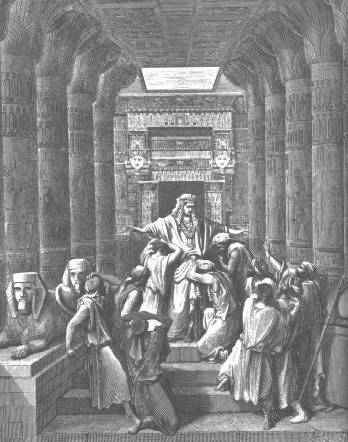Rightly Understanding God’s Word: Whole-Book Context, Part 2, by Craig S. Keener
But Onan spills his seed on the ground, and God angrily strikes him dead (38:9-10), as he had struck his brother before him. Why did Onan “spill his seed”? And what was so sinful about him doing so? The firstborn (in this case Er) normally received twice as much inheritance as any other brother; if Onan raised up a son for his brother, that son would be counted as his brother’s son and would receive half the inheritance, leaving only a quarter for Onan and a quarter for Shelah. But if Tamar could not become pregnant, Onan would receive two-thirds of the inheritance and Shelah one-third. Onan was greedy, and cared more about the extra inheritance than about honoring his brother and providing for Tamar. God defended Tamar’s honor, because he cared about Tamar. The text teaches us about justice.
But the story goes on. Judah, fearing that allowing his sons to sleep with Tamar is leading to their deaths, refuses to give his final son to Tamar. In some of the surrounding cultures (though never in later Israelite law), if a brother were unavailable, a father was considered acceptable; so Tamar takes matters into her own hands. She disguises herself as a prostitute, knowing what kind of person Judah is; then she allows him to impregnate her, but keeps his signet ring so she can later prove that he is the father (38:18).

Joseph reveals himself to his brothers. By Gustave Doré.
When Judah learns that Tamar is pregnant, he orders her to be executed. This reflects a double standard practiced in many cultures: the idea that a man can have sex with anyone (as Judah slept with what he thought was a prostitute) but a woman cannot. But God has no double standard: sin is as wrong for a man as it is for a woman. Tamar sent him the signet ring, forcing Judah to release her and admit, “She is more righteous than I” (38:26). That was the moral of the story: Judah was immoral and raised two immoral sons, and now is caught in his guilt. By challenging the double standard of his culture, the writer argues against sin. This is not a “dirty story” at all!
But whole-book context shows us more. The chapter directly before chapter 38 is chapter 37, where Judah takes the lead in selling his brother Joseph into slavery. In chapter 38, Judah’s lifestyle of sin finally catches up with him, and he suffers for it! He sold his father’s son into slavery; now he loses two of his own sons to death. The chapter after 38 is chapter 39, where Joseph resists the sexual advances of Potipher’s wife, despite the penalty he faces for doing so. Joseph does not practice a double standard: he lives holy no matter what the cost. And a few chapters later, God rewards Joseph for his obedience; he becomes Pharaoh’s vizier, and the agent through whom God can actually rescue the very brothers who sold him into slavery. And when Joseph is exalted, Pharaoh gives Joseph his signet-ring (41:42)—inviting us to remember Judah who lent his to what he thought was a prostitute (38:11). The larger story has a moral: those who live sinful lifestyles may prosper in the short run, but eventually they suffer; by contrast, those who remain faithful to God may suffer at first, but in the end they will be blessed.
Category: Biblical Studies, Spring 2004


